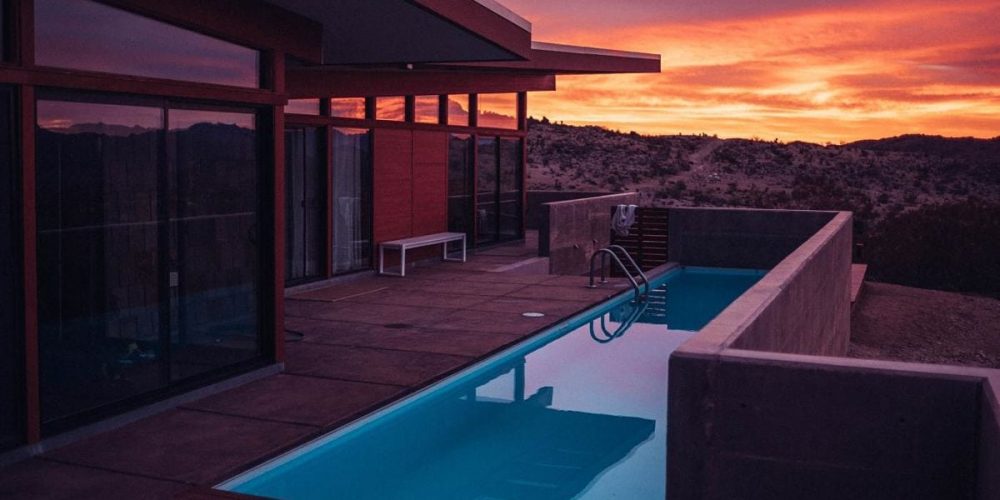Since the pandemic, vacation rental homes have gained a significant share of the market demand. Vacation rental homes give travelers the convenience and comfort of home-like accommodations, as well as a sense of the local culture. Many investors have seized the opportunity to expand and diversify their assets. Platforms like Airbnb and VRBO have made it much easier for owners to rent out their investment properties as short-term vacation rentals.
Vacation rental properties, also known as short-term rental homes, come with tax implications that owners should be aware of before scooping up additional properties. These taxes can be complex and may require meticulous bookkeeping. Below are some things to be aware of if you are considering investing in short-term rental properties or adding more to your business.
How is mixed-use rental property treated on your taxes?
If you own a property that is used for both personal and rental purposes, limitations may apply to the expenses that you can deduct. The IRS considers a dwelling unit a personal residence if you use it for personal purposes during the tax year for more than 14 days, or more than 10% of the total days you rent the property to guests at a fair market price (whichever is greater).
There are special exceptions when you use more than one dwelling as a personal residence for the year, such as snowbirds who rent one home at fair market value for 300 days of the year. For dwellings that are used for both personal and business rental, you must divide your total expenses between the rental use and the personal use based on the number of days used for each purpose. Expenses that exceed your gross rental income are not allowed as deductions, but you may be able to carry them forward to the next year. If you itemize your deductions on Schedule A, you may be able to deduct some of the portion of your personal expenses.
What’s the difference between expenses and improvements for a short-term rental?
Improvements and repair expenses should be carefully classified. Improvements include anything that increases the value or extends the life of the rental property, and these types of expenditures are considered capital expenses. These could be things like a new roof or HVAC system, a kitchen renovation, or adding a deck to your beach house. Improvements must be capitalized and depreciated over multiple years.
Repair expenses are typically less costly items and include fixes that keep the property in its current condition. These could be things like replacing a leaking faucet, patching wall damage, or fixing a broken lock. If your rental classification allows you to deduct expenses, you typically deduct them in the year in which they were incurred.
Can depreciation of rental property lower my taxes?
In short, yes. It’s important to choose the right depreciation schedule based on the asset classification. A common misconception is that all rental real estate has to be depreciated on a schedule of 27.5 years. Spreading out the value over such a long stretch of time will limit your tax savings. A closer look at your tax picture by a qualified CPA can often reveal an alternative depreciation strategy that will both lower taxes and increase your return on your investment. Depreciating assets is a complex process with many nuances involved, including the possibility of depreciation recapture if you sell or otherwise dispose of the property. For that reason, we strongly recommend against trying to DIY this area of your taxes.
Does rental property income count as qualified business income (QBI)?
One area of confusion for rental home owners comes when determining whether income from guests or renters using the property must be classified as business income. Qualified Business Income, or QBI, is defined by the IRS as “the net amount of qualified items of income, gain, deduction, and loss with respect to any trade or business.” The IRS recognizes a safe harbor for mixed-use property (that is, a property that is used personally by the owner and also rented out) to be treated as a business for the purpose of the qualified business income deduction.
The following requirements must be met by taxpayers to qualify for this safe harbor:
- The owner must maintain separate books and records to reflect income and expenses for each rental property.
- The owner logs at least 250 hours of rental services performed per year. These services could be performed by the owner personally or by contractors. If the rental real estate enterprise has been in operation for 5 or more years, the 250+ hours of services must have been performed in at least three of the past five years.
- The taxpayer maintains contemporaneous records, including time reports, logs, or similar documents, regarding the following:
- Hours of all services performed
- Description of all services performed
- Dates on which services were performed
- Who performed the services
- The taxpayer/rental property owner attaches a statement to the corresponding year’s tax return.
Keep in mind that QBI excludes capital gains or losses, dividends, interest income, income earned outside the U.S., and certain wage and guaranteed payments made to partners and shareholders. When filing taxes, you must submit Form 8995 to determine your qualified business income deduction.
Will I get a 1099 from Airbnb or another booking platform?
As of 2022, the threshold for online merchant services platforms to send Form 1099-K is $600 with no transaction minimum. You’ve always been responsible for reporting all of your income on your tax return—the new requirement means that the IRS will have data from the other side to help it verify what you report.
Update: Congress has delayed the law requiring e-commerce platforms to report information on workers earning $600 or more, which was a part of The American Rescue Plan Act of 2021. This law has been pushed by one year, meaning platforms such as Airbnb, eBay, and Etsy will rely on the threshold of more than 200 transactions worth an aggregate above $20,000 for 2022 (not $600).
Do I need to file a state tax return for my rental property?
If you own a rental property in a state other than your home state, or own multiple rental properties scattered across the U.S., you may be on the hook to file income tax returns in several states. It’s worth noting that not all states have income tax, but those that do will expect you to report your income earned in the state and pay your share of taxes. Requirements will vary by state—the important thing to know is that you’ll need to look at where your rental property is located, as opposed to your primary residence.
Do Airbnb hosts file Schedule C or Schedule E?
Schedule C vs. Schedule E is another complex issue that short-term rental owners should ideally figure out prior to posting their first listing. We’ve addressed the nuances of how to choose between Schedule C and Schedule E in another blog post. For assistance in determining how to classify your rental properties, contact us to schedule a consultation with an advisor. We have extensive experience working with Airbnb and VRBO hosts, as well as vacation rental owners just getting started and looking to grow a rental empire.
Feeling overwhelmed by Airbnb taxes?
As CPAs based in Jacksonville, Florida, we’re well-positioned to help you put the vacation back in short-term rental ownership. We’ll look at the big picture of your taxes and help you take proactive steps to reduce your tax burden where possible, and also ensure your record-keeping practices keep you in compliance. Contact us today to schedule a consultation.

